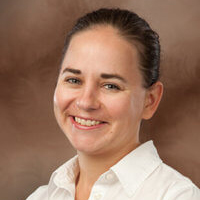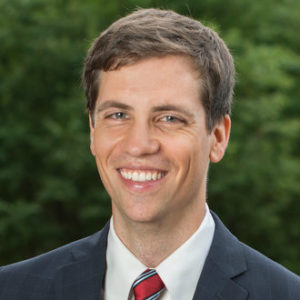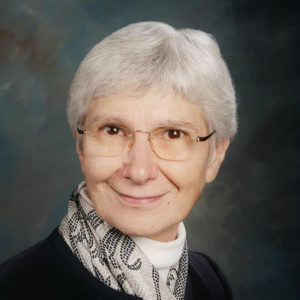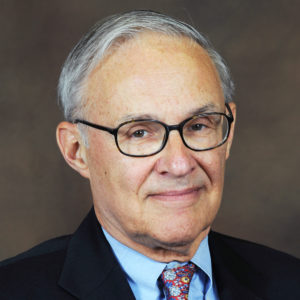Emily Wilson’s Iliad
Should a poem both beautiful & barbaric be easy to read?
Weekly | Thursdays, June-July 2024
Online Seminar
An epic poem written in English blank verse, Paradise Lost spans a cosmic scope–from the rebellion against heaven to the creation of the world and man’s expulsion from Eden. Milton first sets himself the task of speaking in Satan’s voice, offering an inimitable perspective on exercising the will against the freedom for which it was meant. Then he tackles the interior movements and motivations of Eve and Adam, relating with sensitivity and scope their decision to eat from the tree of knowledge of good and evil, and what comes to pass thereafter.
A master of English verse and its classical forebears, Milton deals deftly with the complexity at the very root of being human.
Molly Brigid McGrath on John Milton’s Paradise Lost
This course takes place weekly on Thursdays, via Zoom, from 6 PM to 8 PM ET. It is open only to alumni of the Hertog Foundation's programs. All course materials will be provided.

Molly Brigid McGrath is a professor of philosophy at Assumption University. She specializes in phenomenology, social ontology, and political philosophy, with particular interests in the works of Husserl, Aristotle, Searle, and classic texts by Plato, Aquinas, and Montesquieu.

Molly Brigid McGrath is a professor of philosophy at Assumption University. She specializes in phenomenology, social ontology, and political philosophy, with particular interests in the works of Husserl, Aristotle, Searle, and classic texts by Plato, Aquinas, and Montesquieu. She has previously been involved with the Intercollegiate Studies Institute’s summer honors program. McGrath recently published a philosophical inquiry into the origins of identity politics titled “The Authority of the Sacred Victim.” She also contributes short analytical pieces that delve into philosophical interpretations of films and TV shows including “The Ballad of Buster Scruggs, a Frontier Anthology,” “Wonder Woman: A Movie About Men,” and “Relativists Get Their Favorite Movie Wrong.”
Readings:
Topics:
Discussion Questions:
Readings:
Topics:
Discussion Questions:
Readings:
Topics:
Discussion Questions:
Readings:
Topics:
Discussion Questions:
Readings:
Topics:
Discussion Questions:
Readings:
Topics:
Discussion Questions:

Mary Elizabeth Halper
Mary Elizabeth Halper is Dean of the Humanities at Hertog program and a tutor at St. John’s College, Annapolis. Previously, she was Associate Director of the Hertog Foundation. She graduated with B.A.s in Philosophy and Classics from the University of Dallas and has since been devoted to liberal education in various forms.

Christopher Scalia
Christopher J. Scalia is a senior fellow in the Social, Cultural, and Constitutional Studies department at the American Enterprise Institute, where he focuses on literature, culture, and higher education. Prior to his role at AEI, Dr. Scalia was an English professor with a specialty in 18th-century and early 19th-century British literature.

Antón Barba-Kay
Antón Barba-Kay is Associate Professor of Philosophy at The Catholic University of America, in Washington, D.C. (He is also, at the moment, Visiting Professor of Humanities at Deep Springs College, in California.) He earned his Ph.D. from the University of Chicago’s Committee on Social Thought, with a dissertation on Hegel’s Phenomenology of Spirit. The bulk of his research has concentrated on the subjects of recognition and aesthetics in nineteenth-century German philosophy. He is also writing a book about the political and philosophical implications of the digital revolution.

Amy A. Kass
Amy Apfel Kass (1940 – 2015) was a senior fellow at the Hudson Institute, Senior Lecturer Emerita in the humanities at the University of Chicago, and coeditor of What So Proudly We Hail: The American Soul in Story, Speech, and Song. She was an award-winning teacher of classic texts.

Leon R. Kass
Leon R. Kass, M.D., is the Addie Clark Harding Professor Emeritus in the Committee on Social Thought and the College at the University of Chicago and the Madden-Jewett Chair at AEI. He was the chairman of the President’s Council on Bioethics from 2001 to 2005. He has been engaged for more than 40 years with ethical and philosophical issues raised by biomedical advances and, more recently, with broader moral and cultural issues.

Ryan P. Hanley
Ryan Patrick Hanley is Professor of Political Science at Boston College. His research in the history of political philosophy focuses on the Enlightenment. He is the author of Our Great Purpose: Adam Smith on Living a Better Life and Love’s Enlightenment: Rethinking Charity in Modernity.